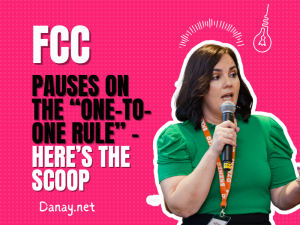As AI continues to change the digital marketing world at the speed of, well, AI, the regulations are coming in hard and heavy. The Federal Trade Commission (FTC) has officially rolled out a game-changing rule aimed at cracking down on fake reviews and deceptive testimonials in the marketplace. This move is a major step forward in creating a fair playing field for honest businesses while protecting consumers from misleading practices.
What Is the New Rule All About?
Fake reviews have long been a problem online, with businesses using deceptive tactics to inflate their ratings or damage competitors. The FTC’s new rule specifically targets practices like:
1. Fake Consumer and Celebrity Testimonials
The rule prohibits businesses from creating or purchasing fake reviews—whether AI-generated or fabricated by other means—that mislead consumers into believing they’re from real customers or celebrities. It also targets testimonials that misrepresent someone’s experience with a product or service.
2. Buying Positive or Negative Reviews
Companies can no longer offer incentives or compensation in exchange for reviews that are biased toward a certain sentiment. Whether it’s an outright payment or a more subtle offer, if it’s tied to writing a positive or negative review, it’s now considered a violation.
3. Insider Reviews and Undisclosed Connections
Employees, managers, and even close family members who leave reviews without clearly disclosing their connection to the company are also in violation. This aims to prevent businesses from boosting their reputation through biased insider reviews.
4. Misleading Company-Controlled Review Sites
If a business controls a website that presents itself as an independent review platform, but actually promotes its own products, this practice is now banned under the new rule.
5. Suppression of Negative Reviews
The rule prevents businesses from using threats, legal intimidation, or other unfair tactics to hide negative reviews. It also bans companies from pretending that all submitted reviews are visible when, in reality, negative ones have been suppressed.
6. Fake Social Media Engagement
The purchase and sale of fake followers, likes, and views to falsely inflate social media influence are prohibited if they are used for deceptive commercial purposes.
Why This Rule Matters
For honest entrepreneurs and businesses, this rule levels the playing field by penalizing those who resort to dishonest tactics. FTC Chair Lina M. Khan emphasized that fake reviews “pollute the marketplace” and divert business away from those who compete fairly. By introducing civil penalties for violators, the FTC aims to not only stop these practices but also deter others from engaging in them.
Enforcement and What’s Next
The rule is set to go into effect 60 days after it’s published in the Federal Register. The FTC will now have stronger authority to impose fines and take action against violators, which is a significant improvement from the previous case-by-case approach. Businesses that have relied on these deceptive tactics will need to clean up their practices, or face serious consequences.
Final Thoughts: A Win for Honest Marketing
This new FTC rule is a major win for honest businesses and consumers alike. As a Latina entrepreneur in digital marketing, this is a signal that the market is shifting toward more transparency and fairness—values that align closely with what we stand for. By staying informed and adhering to ethical practices, we can continue to build trust and credibility in our own brands. For more insights and updates on marketing best practices, stay tuned to our blog!







 Noticias Newswire
Noticias Newswire 

